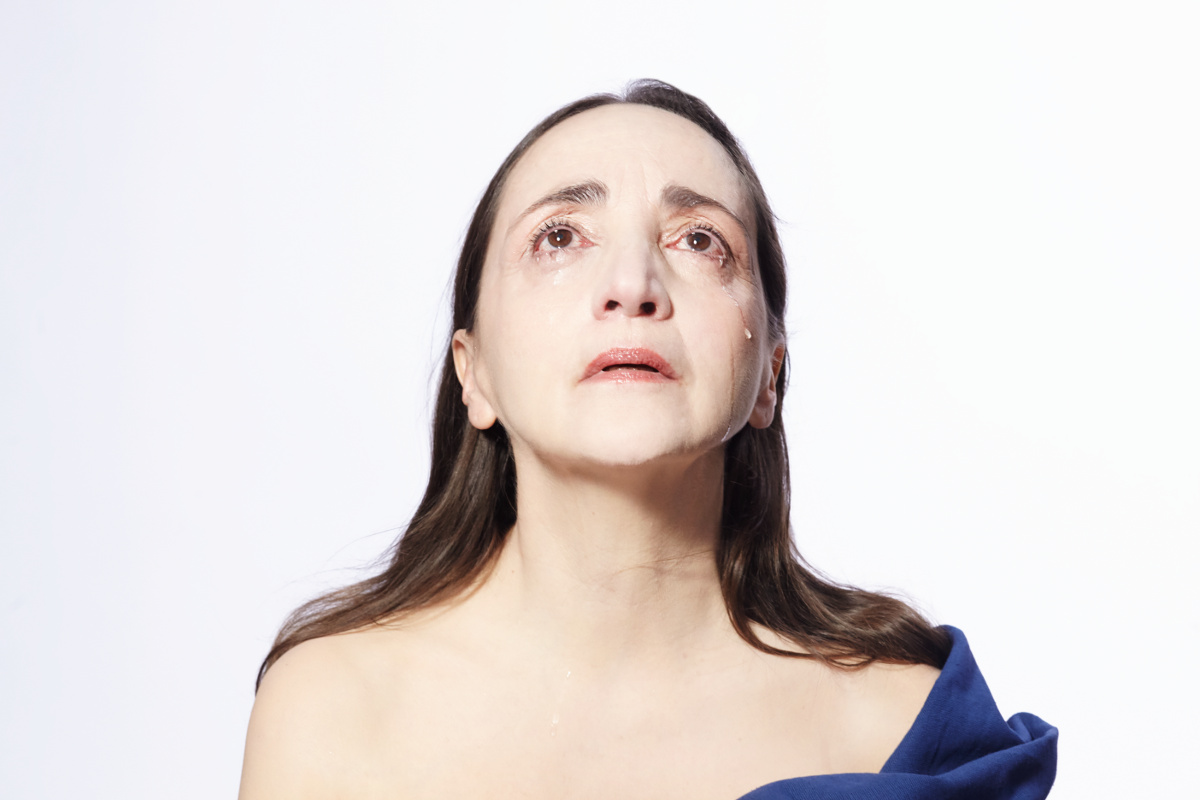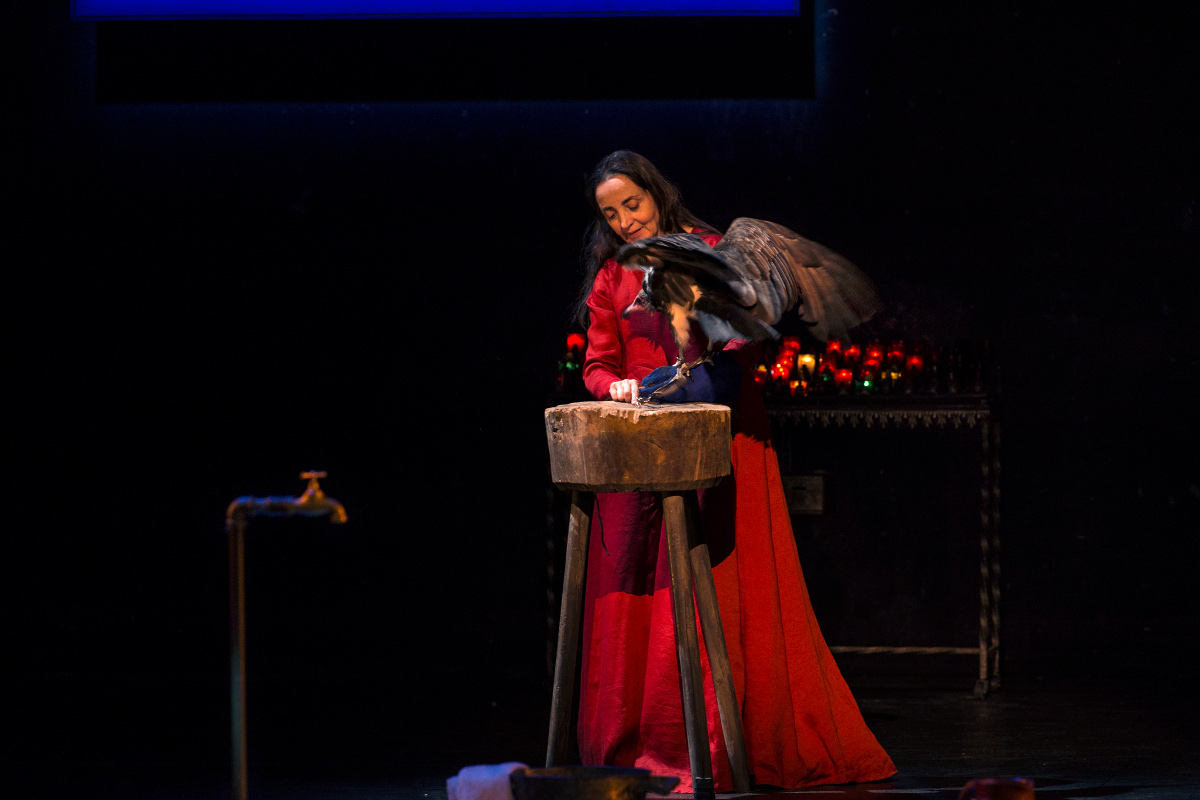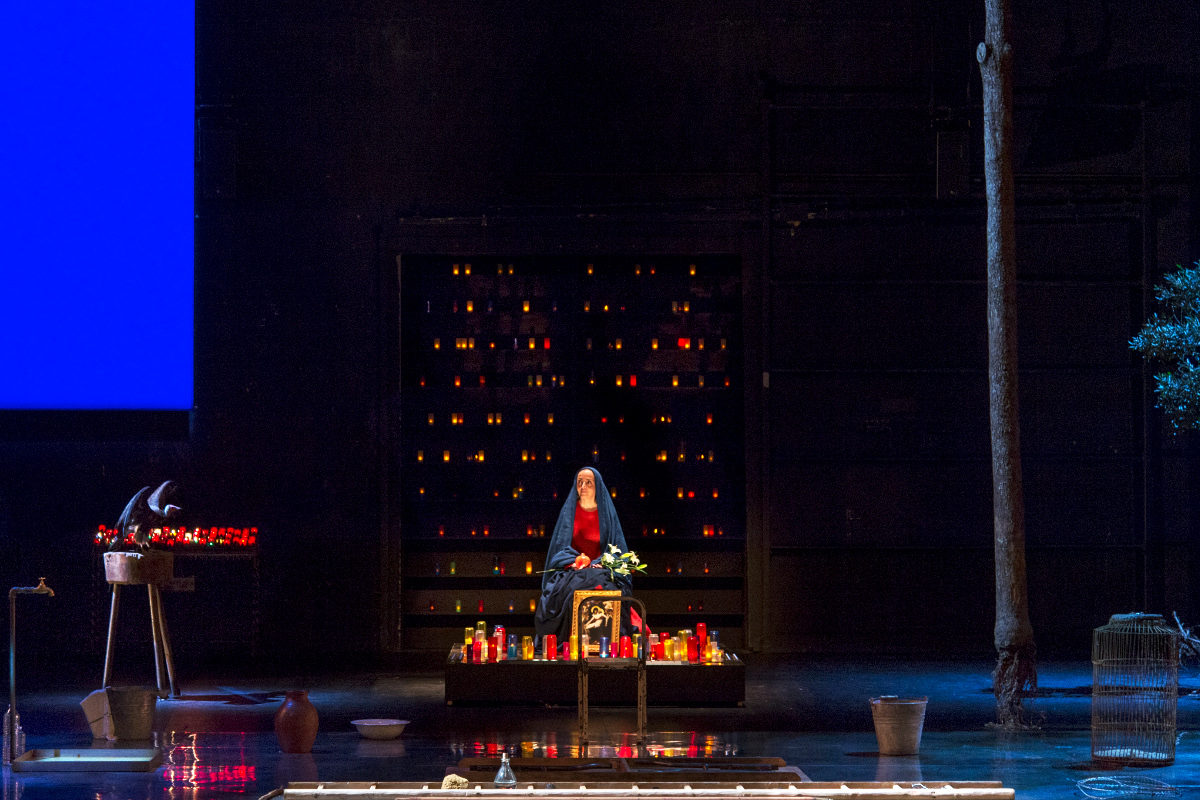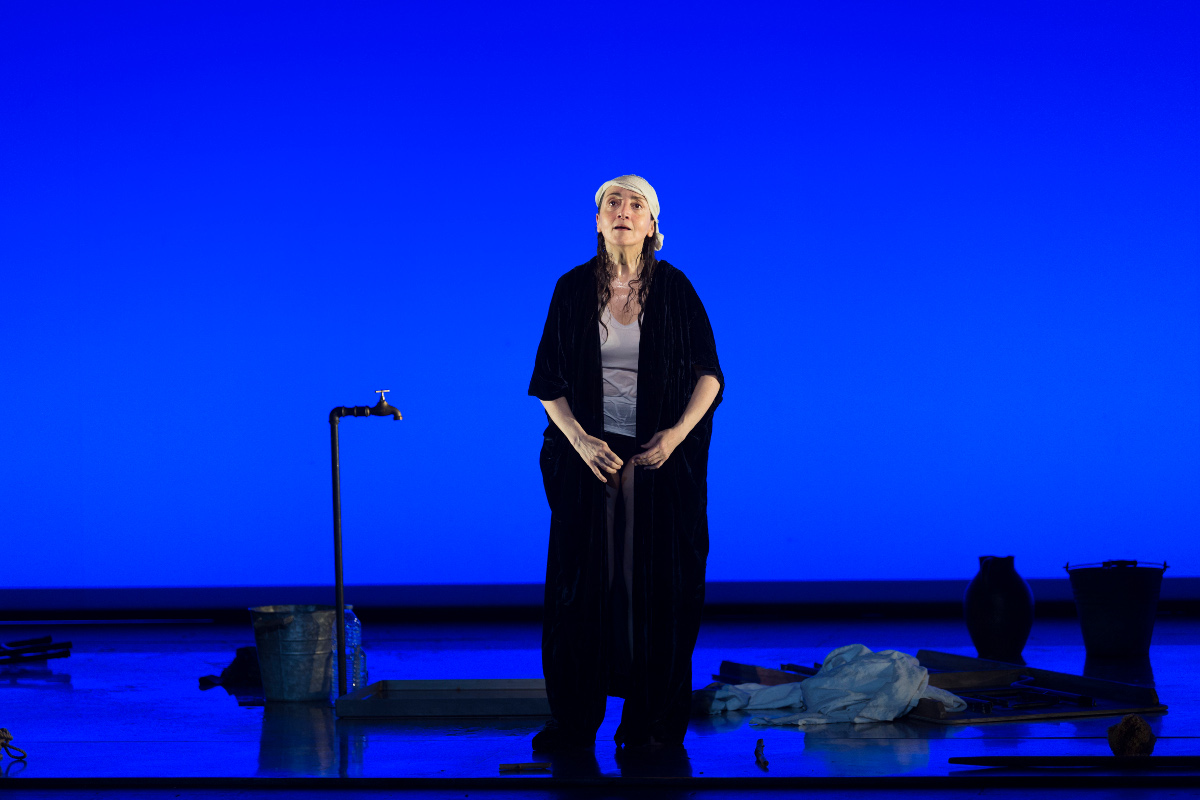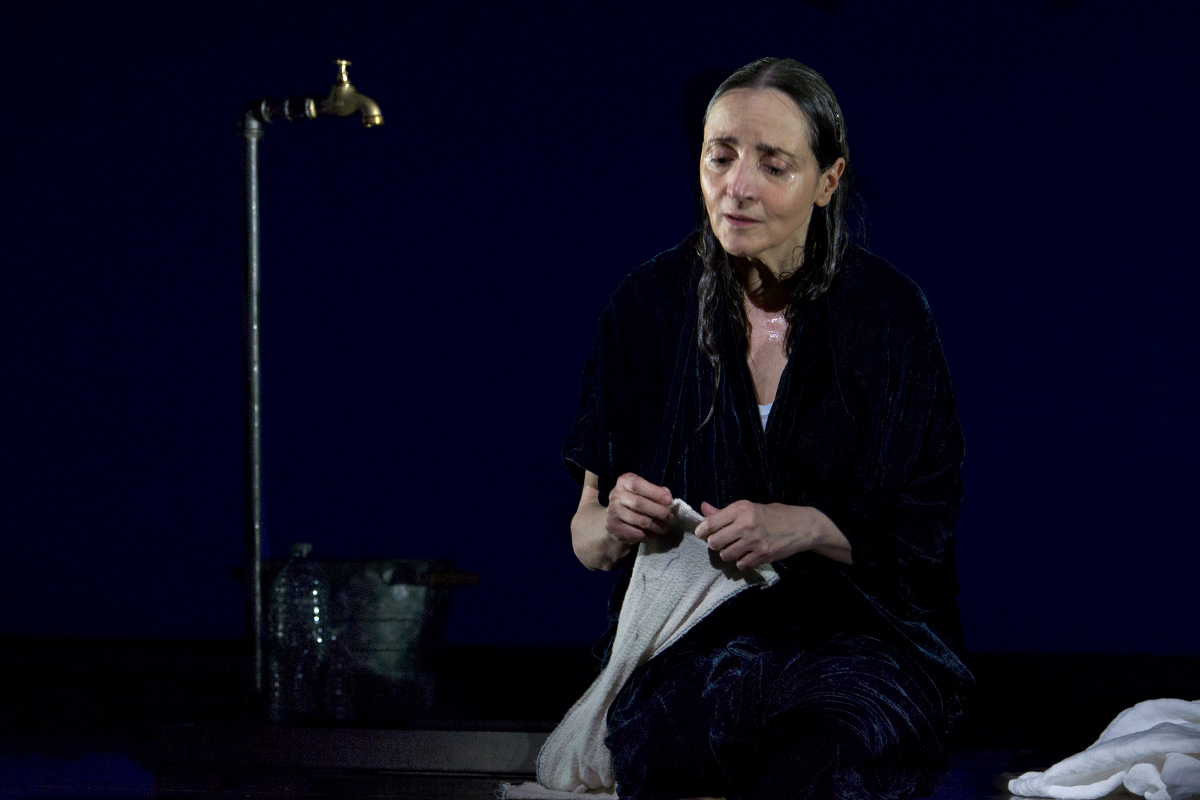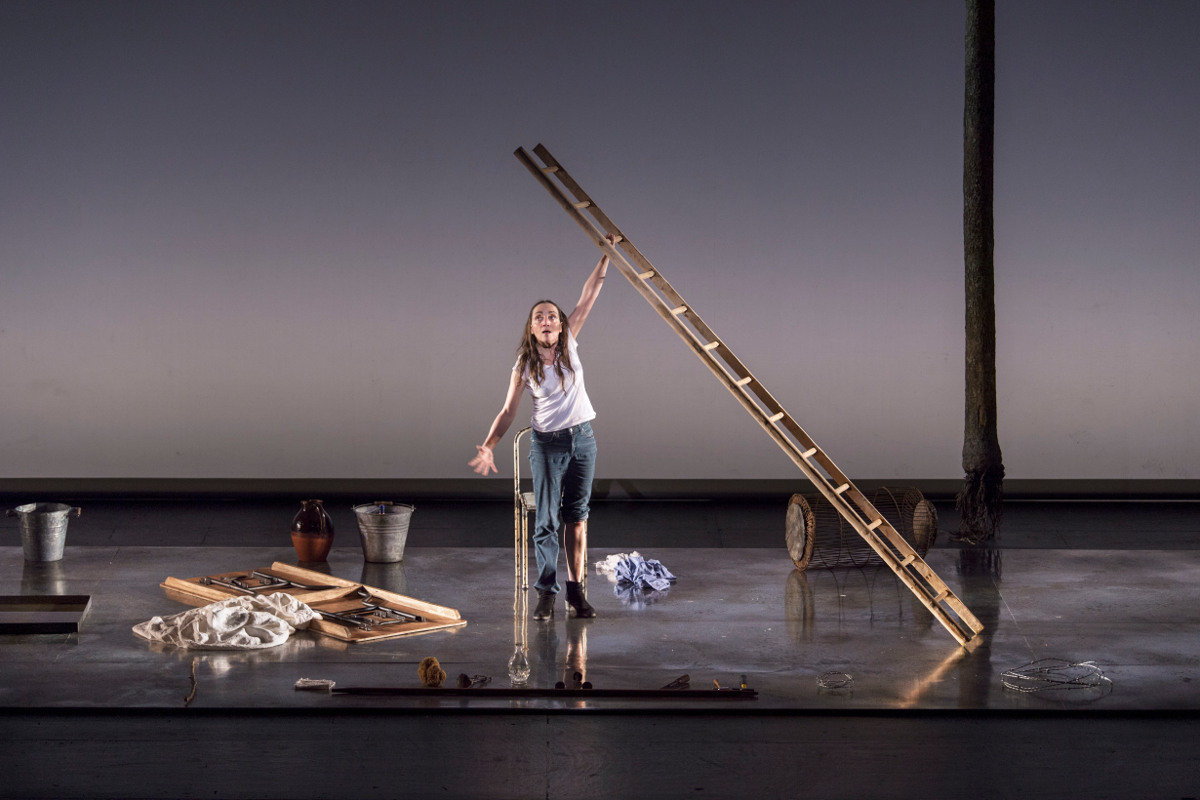Her name is Mary. She has seen her son tortured on the cross. We think we know her story. But do we ? "Every now and then," writes Deborah Warner, "there comes a story that needs to be told, a personal encounter, a known intimacy, a profound experience, that in the quiet of the evening must be shared and understood between the storyteller and the audience." The Testament of Mary is one of these stories.
This is the story of one of the world's most famous women, one of the most well-known figures in Western art. The Irish writer Colm Tóibín lets her speak, in everyday words. That simple gesture causes a sea-change : History loses its capital H. We hear a story, told by a mother desperate to tell the truth in a time of turmoil and change, and in so doing revealing her own fragile humanity.
Her testimony, as she delivers it, deserves to be discovered from the stage. Deborah Warner loves and practices theatre in all its dimensions, from the great shakespearien show down to the solo. In her eyes, "solo" is not just a synonym of solitude on stage. The words of the interpreter, even if spoken "into a wilderness", are spoken to us. As the audience is listening, the artist's world surges around the listeners and enfolds them. The art of the solo consists in letting them, with very simple means, into a "dreamscape" as through a keyhole. And once it unfolds, this world feels indeed like a dream, both familiar and strange.
In the theological version, the day of the Crucifixion is a turning-point of the destinies of the world. In this woman's version, it was for many people a day just like any other, quite ordinary – a day when Mary saw, as if in a hallucination of grief, street vendors grilling meat on braseros, horses being shoed... "On that day, [...] in the middle of all the terror and the shrieking and the crying out," she also saw a man come close to her "who had a cage with a huge angry bird trapped in it, the bird all sharp beak and indignant gaze. The man also carried a bag which I slowly learned was half full of live rabbits. And during those hours on that hill, during the hours that went more slowly than any other hours, he plucked the rabbits one by one from the sack and edged them into the barely open cage"... Our mind runs keeps running from one track to the other : the one is what we thought we knew, the other what we hear. The contrast between both leads us into uncharted territory. A different story is discovered, a challenge, as it were, that the audience must rise to every evening : the challenge posed by "a different reality, a different possibility". And little by little, another way of understanding emerges – that of shared emotion.
The Testament of Mary was heard for the first time at the Dublin Theatre Festival in 2011. Shortly after this, Colm Tóibín used his theatre text as the basis for his novel. Amidst angry reactions from certain Christian fundamentalists, Deborah Warner directed the play on Broadway in 2013, with Fiona Shaw in the part of Mary, and then subsequently in London the following season. This Testament of Mary, a portrait of a mother struggling to come to terms with the death of her son and her refusal to subscribe to falsification of any kind, was described as “a bold and subversive dramatic tour de force” by Los Angeles Times. It provided an outstanding performer with a text with an overwhelming impact. At the invitation of the Théâtre de l’Odéon and the Comédie-Française, Deborah Warner has reworked her staging for a French production. Dominique Blanc will take on the role played by Fiona Shaw in the Broadway production, giving her the occasion to work once again with the director behind one of her finest roles, here at the Odéon, in 1998: as Nora in The Doll’s House by Ibsen.
Cast
French translation Anna Gibson
original scenography Tom Pye
collaboration to the scenography Justin Nardella
costumes Chloé Obolensky
light Jean Kalman
music, sound Mel Mercier
Assistant to the director Alison Hornus
coproduction Comédie-Française / Odéon-Théâtre de l’Europe
The first performance of The Testament of Mary on Broadway took place on 26 March 2013 at The Walter Kerr Theatre, and was subsequently presented at the Barbican Theatre London in May 2014, in a production directed by Deborah Warner and starring Fiona Shaw.
Originally produced on Broadway by Scott Rudin Productions. Commissioned by Dublin Theatre Festival and Landmark Productions, with the support of Irish Theatre Trust.
estimated length 1h20
with the support of the Cercle de l’Odéon




